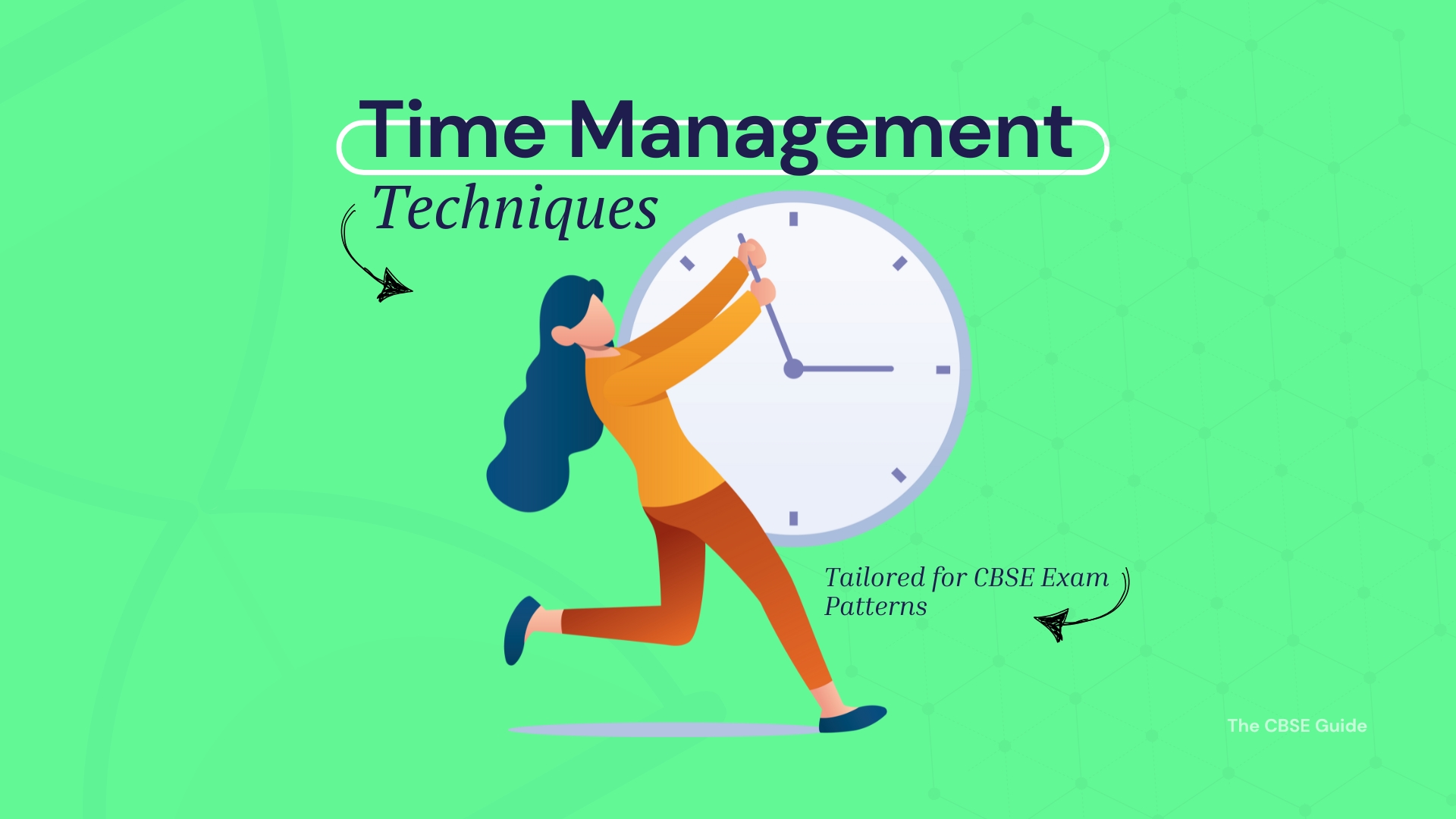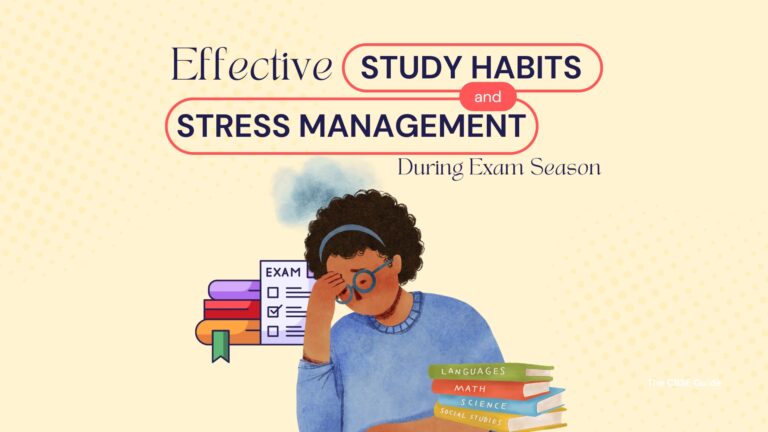Time management is one of the most critical skills for CBSE students preparing for board exams. With vast syllabi, multiple subjects, and structured question patterns, it’s essential to plan your study time efficiently. A well-balanced approach can help you complete your syllabus on time, revise effectively, and perform confidently in exams.
This blog provides practical time management strategies aligned with the CBSE exam pattern to help students make the most of their study sessions and perform well in their exams.
1. Understand the CBSE Exam Pattern
Before creating a study plan, it’s crucial to understand the structure of CBSE exams:
- Objective-type questions (MCQs, Assertion-Reasoning, Fill in the Blanks, etc.)
- Short-answer questions (2-5 marks)
- Long-answer questions (6-8 marks)
The weightage of each section varies by subject, so focus more on high-scoring areas while ensuring all topics are covered.
⌛ Time Management Tip: Start by analyzing previous years’ papers and sample papers to understand how questions are distributed. This will help you allocate your study time effectively.
2. Create a Personalized Study Plan
A study plan should be structured, realistic, and customized to your strengths and weaknesses.
Follow these steps to create an effective plan:
2.1 Prioritize High-Weightage Topics
- Go through the CBSE syllabus and mark the most important topics.
- Allocate more time to subjects or topics that you find challenging.
2.2 Set Achievable Daily Goals
- Avoid last-minute cramming by setting daily and weekly goals.
- Example: “Complete 2 chapters of Mathematics and 1 chapter of Science today.”
2.3 Use the Pomodoro Technique
- Study in 25-50 minute focused sessions, followed by a 5-10 minute break.
- This method helps improve concentration and prevents burnout.
📍 Pro Tip: Keep a revision day every week to go through previously studied topics and reinforce learning.
3. Practice with Timed Mock Tests
One of the best ways to prepare for CBSE exams is by solving mock tests under timed conditions.
- Download sample papers from official CBSE resources.
- Set a timer and solve them as if you were in an actual exam.
- After completing the test, analyze your mistakes and adjust your study plan accordingly.
Time Management Trick:
- 1-mark questions → 1-2 minutes each
- 2-5 mark questions → 5-8 minutes each
- 6+ mark questions → 10-12 minutes each
Practicing this way ensures you complete your paper within the allotted time on exam day.
4. Allocate Time Based on Question Weightage
During the exam, distributing time wisely between different sections is essential.
Exam Time Management Strategy:
- First 10 minutes: Read the entire question paper and underline important points.
- First Half (50% of the time): Attempt short-answer questions first.
- Next 30-40 minutes: Write detailed long-answer questions.
- Final 10 minutes: Revise and check for errors.
📍 Golden Rule: Never spend too much time on a single question. If you get stuck, move on and return to it later.
5. Minimize Distractions for Focused Study
With social media, notifications, and other distractions, maintaining concentration is challenging.
How to Stay Focused While Studying:
- Designate a study zone: A quiet, clutter-free space helps boost productivity.
- Use productivity apps: Apps like Forest and Stay Focused block distracting sites.
- Follow the 5-minute rule: If an unrelated thought comes up, write it down and address it after the study session.
📍 Quick Fix: Keep your phone on silent or in another room while studying to avoid distractions.
6. Maintain a Healthy Routine
Your brain functions best when it’s well-rested and nourished.
Healthy Study Habits for Better Time Management:
- Get enough sleep: At least 7-8 hours to enhance memory retention.
- Eat brain-boosting foods: Nuts, fruits, and green vegetables help maintain focus.
- Exercise daily: A 15-minute walk or yoga session can improve concentration.
- Practice meditation: Helps reduce stress and improves clarity during exams.
📍 Bonus Tip: Avoid studying late at night, as your brain retains information better in the early morning hours.
Final Thoughts: Mastering Time Management for CBSE Exams
Time management can make a significant difference in your CBSE exam performance. By following a structured study plan, practicing timed mock tests, and maintaining a healthy routine, you can confidently approach your exams.
Key Takeaways:
- Understand the CBSE exam pattern and question weightage.
- Follow a well-structured study plan.
- Solve mock tests under timed conditions.
- Manage exam time wisely to maximize scoring potential.
- Minimize distractions and maintain a healthy lifestyle.
Implement these techniques consistently, and you’ll find yourself more prepared and stress-free on exam day.

